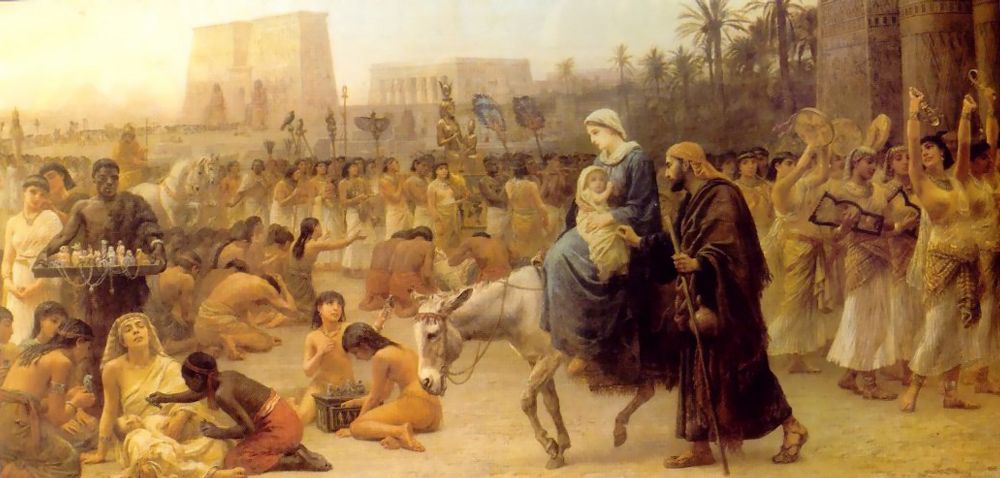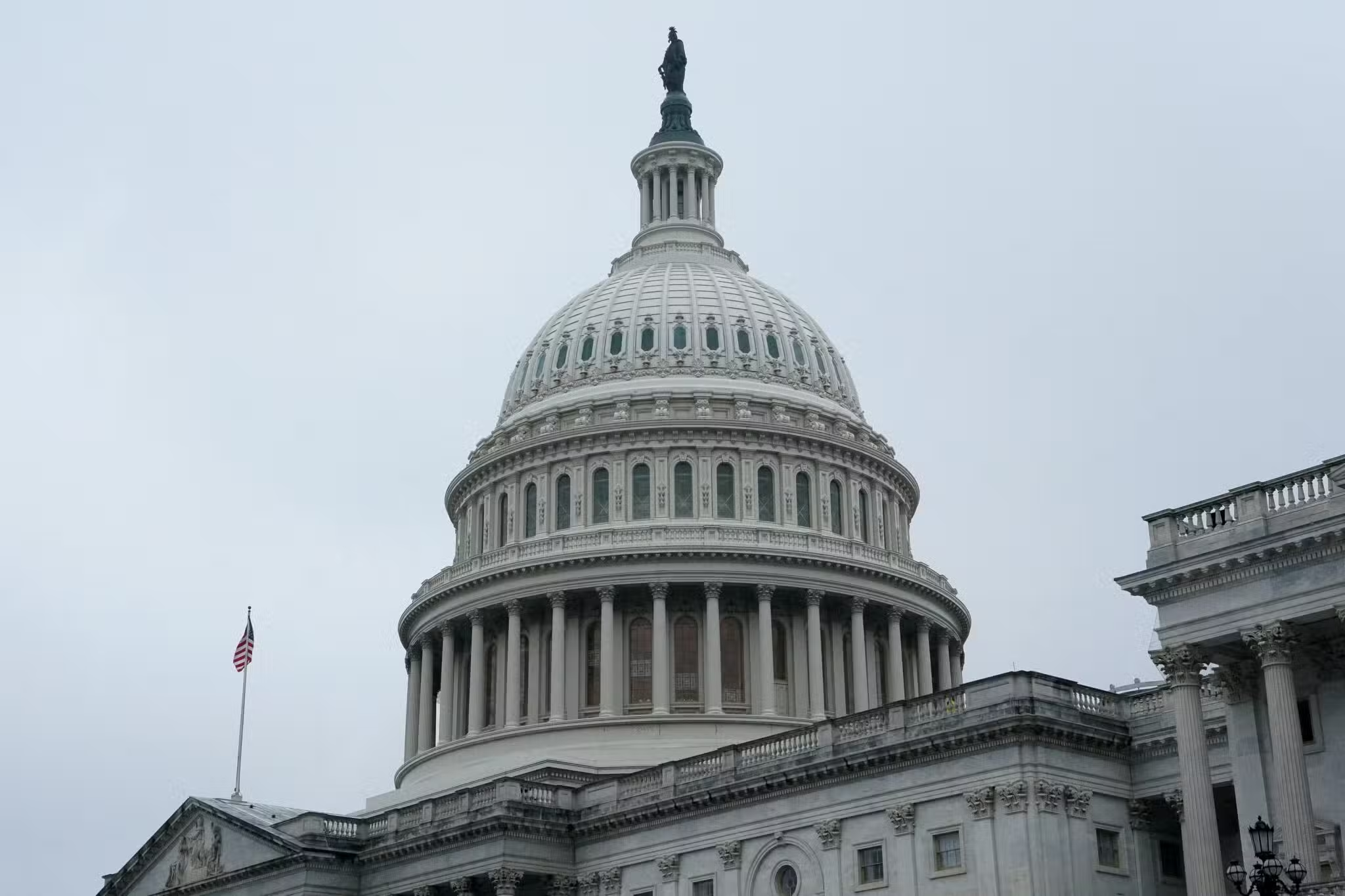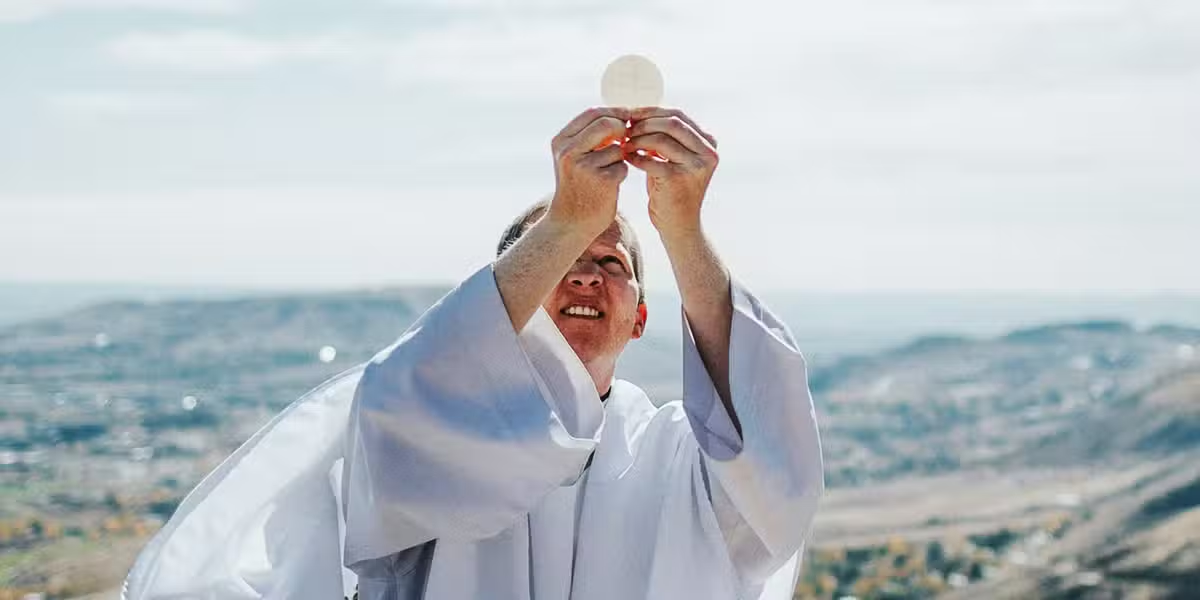As Christmas approaches, I’m prompted to give you my take on Nativity stories involving the Holy Family. These stories might help us all become more mindful of the poor in our midst.
First, we consider the Holy Family at Bethlehem. They were poor and affected by various political realities—just as the poor are in our day. Thanks to a decree of Emperor Augustus, Joseph and Mary had to leave their home in Nazareth and journey to Bethlehem. There, in a poor stable, Mary gave birth to Jesus, wrapped him in swaddling clothes and laid him in a manger (see Luke 2:1-7).
Today, many of us live safely in comfortable homes and will soon be decorating the family tree as Christmas music drifts through the air. But it’s hardly a time of cozy peace and joy for everyone. Hungry people walk in our ghettos, asking for handouts. An atmosphere of violence prevails at times. Drop-in centers are filled, forcing some to sleep under bridges or in alley doorways. It’s an echo of “no room in the inn.” It’s also a cue for us to offer compassion and assistance to those suffering around us.
Shepherds in the Field
“There were shepherds in the fields keeping watch over their flocks at night,” writes Luke (2:8, NRSV). An angel of the Lord tells the shepherds that they will find a child—their Savior—at Bethlehem lying in a manger. “And suddenly there was with the angel a multitude of the heavenly host, praising God and saying, ‘Glory to God in the highest heaven, and on earth peace among those whom he favors!’” (Luke 2:11-14, NRSV).
Just as the angel brought good news to the poor shepherds, we also can be signs of the good news to down-and-out people in the places we encounter them.
The Massacre of the Innocents
After the birth of Christ, wise men from the east came to Jerusalem seeking the “king of the Jews,” causing Herod to become highly distressed over a potential threat to his throne. Herod told the wise men to search out this “king” and report back to him. Tricked by the wise men, who returned home by another route, Herod went into a rage and gave orders that all male children two years old or under should be pursued and slaughtered (see Matthew, Chapter 2).
Unfortunately, the cruel killing of innocent people is not confined to biblical times. Such large-scale violence—often witnessed in our own day—tests our trust in God and our hope in humanity, and our ability to rise above hatred and revenge. I am not suggesting that those suffering such crimes should meekly remain silent. Such crimes need to be redressed.
At the same time that we seek justice and retribution, we also need to weigh such actions in light of Jesus’ advice in Luke 6:27-28: “Love your enemies, do good to those who hate you, bless those who curse you, pray for those who mistreat you.” These choices are no easier to make in our contemporary situations than they may have been in the days of King Herod.
The Flight Into Egypt
When King Herod’s massacre of the children was about to begin, “the angel of the Lord appeared to Joseph in a dream and said, ‘Rise, take the child and his mother, flee to Egypt, and stay there until I tell you.’ Joseph rose and took the child and his mother by night and departed for Egypt” (Matthew 2:13-14).
The flight of Mary and Joseph with their child is starkly similar to what many immigrants today are routinely suffering. As Bishop Gerald Kicanas of Tucson, Arizona, points out in a recent statement on immigration policy, “The Holy Family experienced being strangers in a strange land. They felt the fear, the anxiety of being displaced. They were turned away and shunned. If they were on earth today, they would qualify, under international law, as a refugee family.”
How might we be more sensitive to the plight of refugees today? For starters, we might consider pondering Bishop Kicanas’s statement—just mentioned. In his diocese in southern Arizona bordering Mexico, Bishop Kicanas has witnessed firsthand many crimes inflicted upon immigrants. Although immigration is a complex issue, we should not be deterred from our responsibility to learn more about this issue and to take up the cause of these brothers and sisters suffering unjustly today.









1 thought on “The Trials of the Holy Family Echo Today”
Pingback: One Nation Under God - Catholic Daily